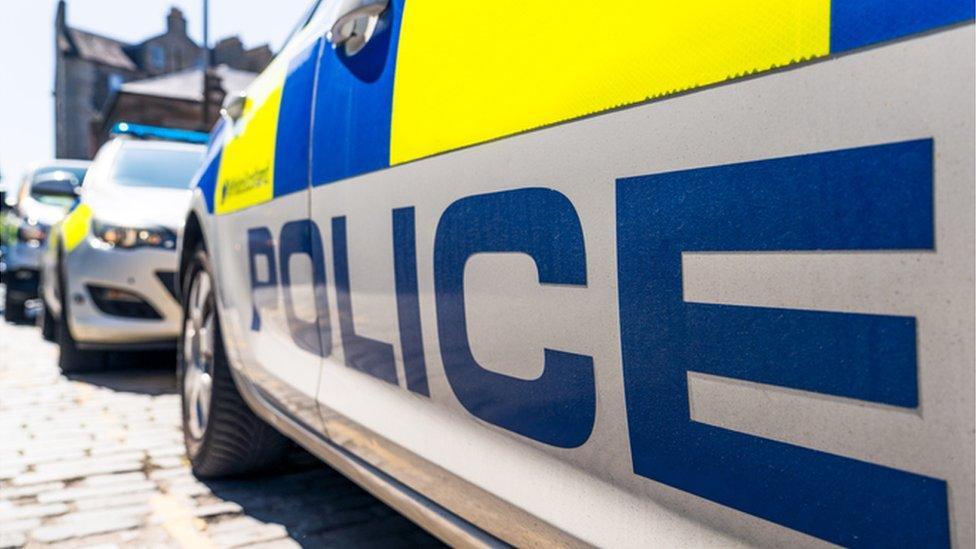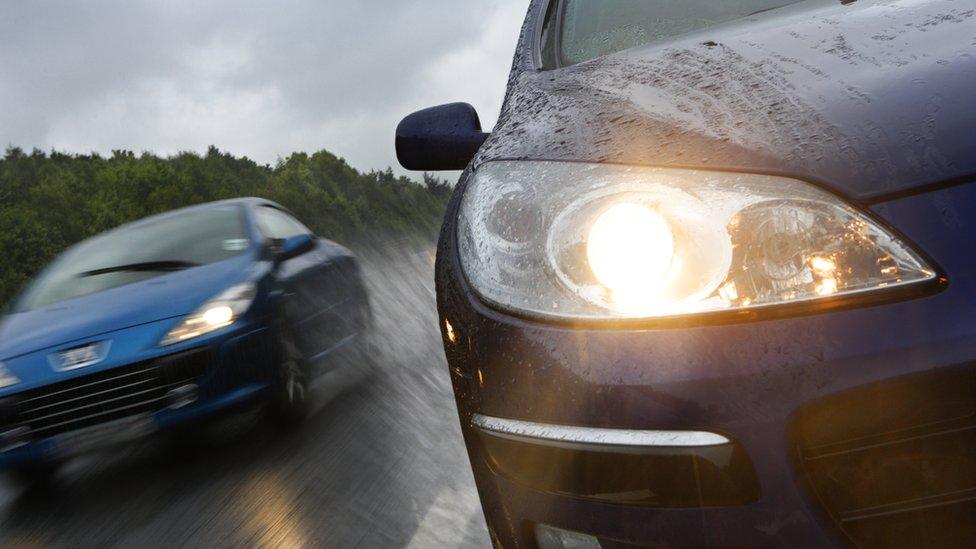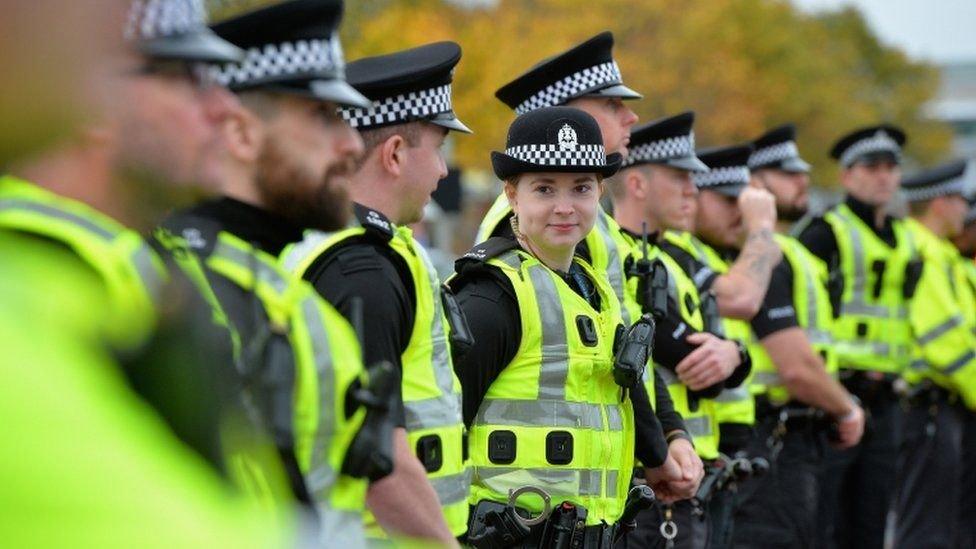Safety fears over drop in police road traffic officers
- Published

Campaigners have expressed fears over the impact of cuts to road traffic officer numbers in the last decade.
Figures obtained by BBC Scotland News reveal there were 548 officers in June - 14% less than in March 2014.
The Institute of Advanced Motorists (IAM) and road safety charity Brake said a visible presence offered a strong deterrent against offending.
But Police Scotland said "hard choices" had to be made to maintain an effective overall service.
Last year, 174 people lost their lives on Scotland's roads - the highest number since 2016.
This compares with 141 in 2021, when numbers dipped during the Covid pandemic.
Neil Greig, of the IAM, said he was "very disappointed" by the decline in officer numbers.
He added: "Our members like to see more high-profile policing. They believe it deters bad behaviour and increases compliance.
"So it is very bad news to get final confirmation of what we have been hearing, that traffic officer numbers are going down."

Mr Greig said marked cars had a "deterrence effect" on driver behaviour in terms of speeding, maintaining a safe distance and mobile phones use.
He added: "Members have been telling us for quite some time now that they don't see marked police cars out on the roads any more. That is my own personal experience as well."
Mr Greig also said traffic was going back up to pre-Covid levels and stressed people felt "confident and safe" when they saw officers on patrol.


Police Scotland saying that "hard choices" are having to be made is a message we're hearing more and more from the country's national force.
This time the issue is road safety, something which means a great deal to the public.
Road fatalities in Scotland have followed a downward trend since they peaked at a scarcely believable 892 in 1969, but the figure of 174 lives lost in 2022 is the highest since 2016.
The Police Federation, which represents rank and file officers, believes there's a link with the 14% reduction in road policing officers and lays some of the blame at the door of the Scottish government, which funds the force.
Police Scotland says it's having to work out its priorities as it deals with what it calls a real terms cut in its budget and the increasing challenge of issues such as cyber crime and online child sexual abuse.
For its part, the Scottish government says it provided a 6.3% increase for policing this year.
It argues that it's not getting enough money from the UK government, which in turn argues that it's given the Scottish government record levels of funding.
With attention turning to next year's policing budget, we can expect a lot more of this over the coming months.

Leigh Payne, a volunteer with Brake Scotland told BBC Radio's Lunchtime Live that speed cameras alone were not an effective deterrent.
She said: "We need police to be present on the roads.
"We have more people using the roads but a lot less police policing the roads.
"We just need to be a bit more proactive on road safety rather than reactive on road safety."
Ms Payne, whose sister was killed in a road traffic accident, also said she would like to see tougher punishments for offenders, such as ordering them to retrain.
Brian Jones, vice-chairman of the Scottish Police Federation, also criticised the cuts.
He told Lunchtime Live: "Any reduction in specialist resources is quite concerning because of the impact that has on those remaining."
Mr Jones, who worked as a road policing officer for 17 years, said the federation had written to the force to raise objections under health and safety legislation.
'Intelligence-led patrols'
Asked if there was a risk more people would die on the roads as a result, he said: "To see the fact that the number of fatalities is creeping back up again is a clear indication that the lack of a presence on the road network is impacting on driver behaviour."
The officer number figures, which were obtained by BBC Scotland News under Freedom of Information, reveal Police Scotland had 642 road traffic officers in 2014.
Ch Supt Hilary Sloan, head of road policing, said: "Hard choices are being taken to maintain effective policing within the funding available to us.
"Officers in road policing and local policing are out every day educating road users and carrying out enforcement."
She said the national force's response to road safety had developed since it replaced the old eight-force model in 2013.
Ch Supt Sloan added: "We have dedicated intelligence-led patrols on targeted routes to take action against dangerous drivers, using an evidence-based approach to identify the highest risk.
"We also support a national calendar of road safety activity, deliver campaigns and are part of a crucial partnership approach."
Related topics
- Published24 May 2023

- Published1 April 2023
